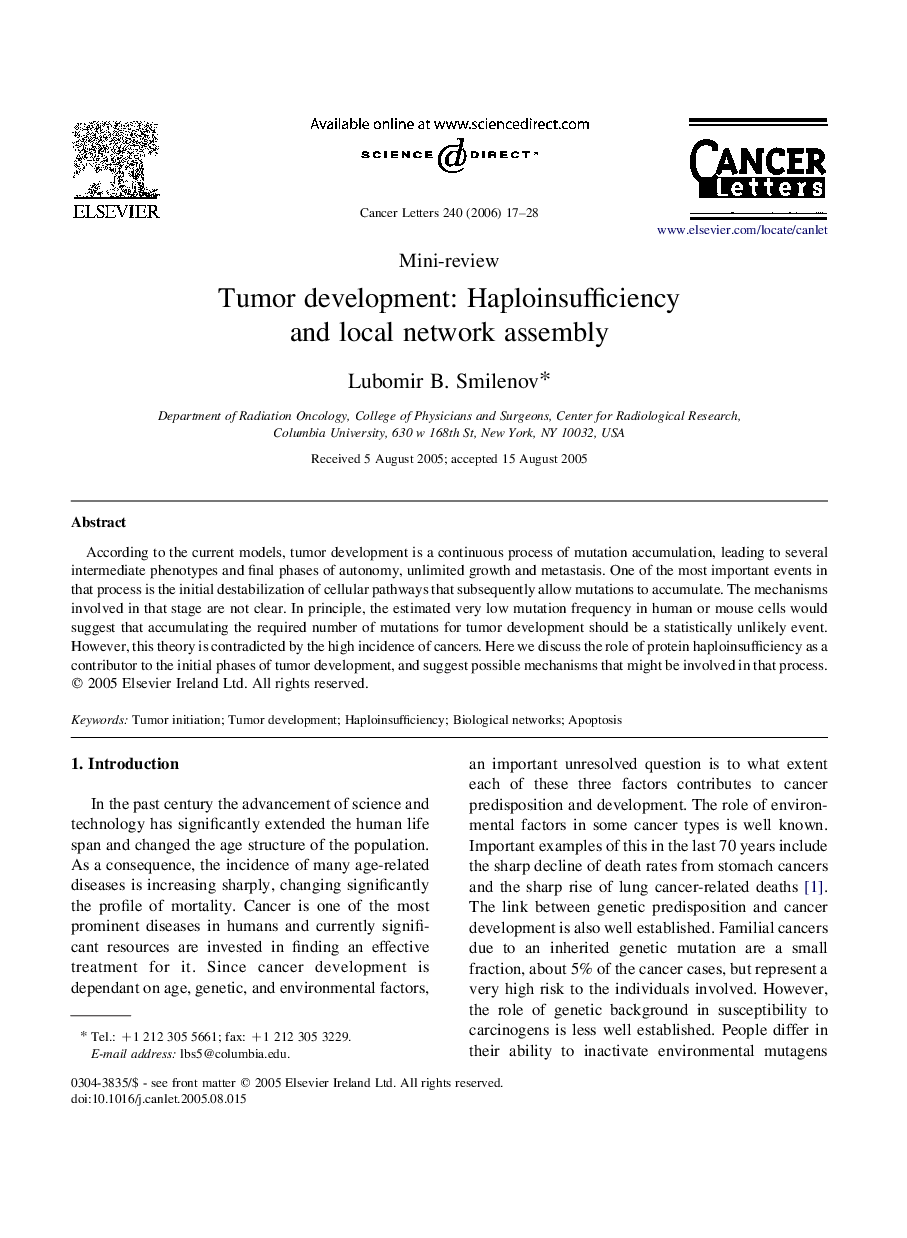| Article ID | Journal | Published Year | Pages | File Type |
|---|---|---|---|---|
| 2115709 | Cancer Letters | 2006 | 12 Pages |
According to the current models, tumor development is a continuous process of mutation accumulation, leading to several intermediate phenotypes and final phases of autonomy, unlimited growth and metastasis. One of the most important events in that process is the initial destabilization of cellular pathways that subsequently allow mutations to accumulate. The mechanisms involved in that stage are not clear. In principle, the estimated very low mutation frequency in human or mouse cells would suggest that accumulating the required number of mutations for tumor development should be a statistically unlikely event. However, this theory is contradicted by the high incidence of cancers. Here we discuss the role of protein haploinsufficiency as a contributor to the initial phases of tumor development, and suggest possible mechanisms that might be involved in that process.
